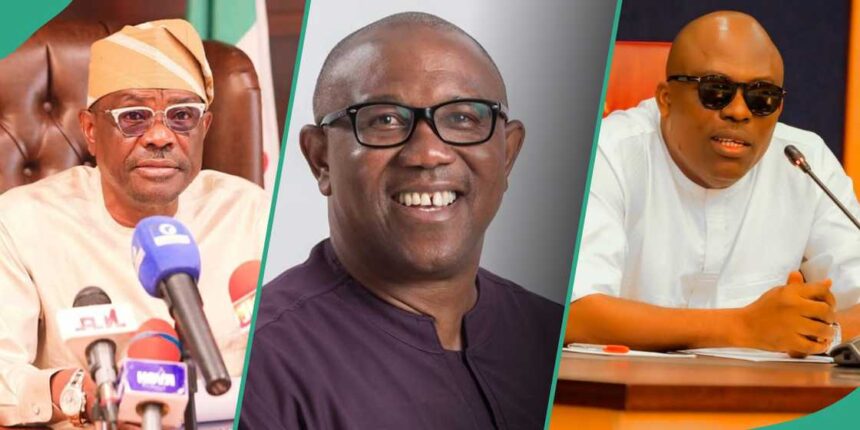In the political arena of Rivers State, Nigeria, a recent turn of events has captured the attention of both the public and key figures in the country’s political landscape. The failure of Fubara, a prominent political figure, and his loyal lawmakers to resume their duties has sparked controversy and speculation. Meanwhile, the actions and statements of Atiku and Obi have created ripples that resonate across the nation, especially in relation to their criticism of Tinubu. Let’s delve into the dynamics and implications of these unfolding events.
The Absence of Fubara and Loyal Lawmakers
The absence of Fubara and his loyal lawmakers from their legislative responsibilities has left many constituents and political observers puzzled. Fubara, known for his strong leadership and unwavering stance on key issues, has been a prominent figure in Rivers State politics for years. His sudden disappearance from the political scene, coupled with the absence of his loyal lawmakers, has raised questions about the reasons behind their non-resumption.
Speculations abound regarding the possible motivations behind Fubara and his loyal lawmakers’ absence. Some suggest internal political conflicts within their party, while others speculate about personal reasons that may have led to their decision to stay away from their duties. Regardless of the cause, their absence has created a void in the political landscape of Rivers State, leaving constituents and stakeholders eager for clarity and resolution.
Atiku and Obi’s Criticism of Tinubu
In a surprising turn of events, Atiku and Obi, two prominent political figures on the national stage, have taken aim at Tinubu, a key figure in Nigerian politics. Their criticism, delivered through public statements and media appearances, has stirred controversy and sparked debates among supporters and opponents alike.
Atiku and Obi’s critique of Tinubu’s political approach and leadership style has not gone unnoticed. Their remarks have highlighted perceived shortcomings in Tinubu’s strategies and decisions, raising questions about the future of his influence in Nigerian politics. The clash of ideas and ideologies between these political heavyweights has added a layer of complexity to the already intricate tapestry of Nigerian politics.
Implications for Rivers State and Beyond
The absence of Fubara and his loyal lawmakers, combined with the brewing tensions between Atiku, Obi, and Tinubu, holds significant implications for Rivers State and the broader political landscape of Nigeria. The vacuum left by Fubara’s absence has the potential to impact political dynamics within the state, reshaping power structures and alliances in unforeseen ways.
Meanwhile, the public sparring between Atiku, Obi, and Tinubu reflects deeper ideological rifts and power struggles that could shape the direction of Nigerian politics in the coming months and years. The reverberations of these conflicts and critiques are likely to extend beyond individual personalities, influencing voter sentiments, party affiliations, and policy debates across the country.
Conclusion
The unfolding events in Rivers State, characterized by the absence of Fubara and his loyal lawmakers, as well as the clashes between Atiku, Obi, and Tinubu, offer a glimpse into the complex and dynamic nature of Nigerian politics. As stakeholders and observers navigate these developments, the implications for governance, leadership, and public discourse remain uncertain.
The interplay of personalities, ideologies, and power dynamics in Nigerian politics underscores the need for transparency, accountability, and dialogue to address the challenges and opportunities that lie ahead. The events in Rivers State serve as a reminder of the ever-evolving nature of politics and the enduring importance of civic engagement and active participation in shaping the future of the nation.






